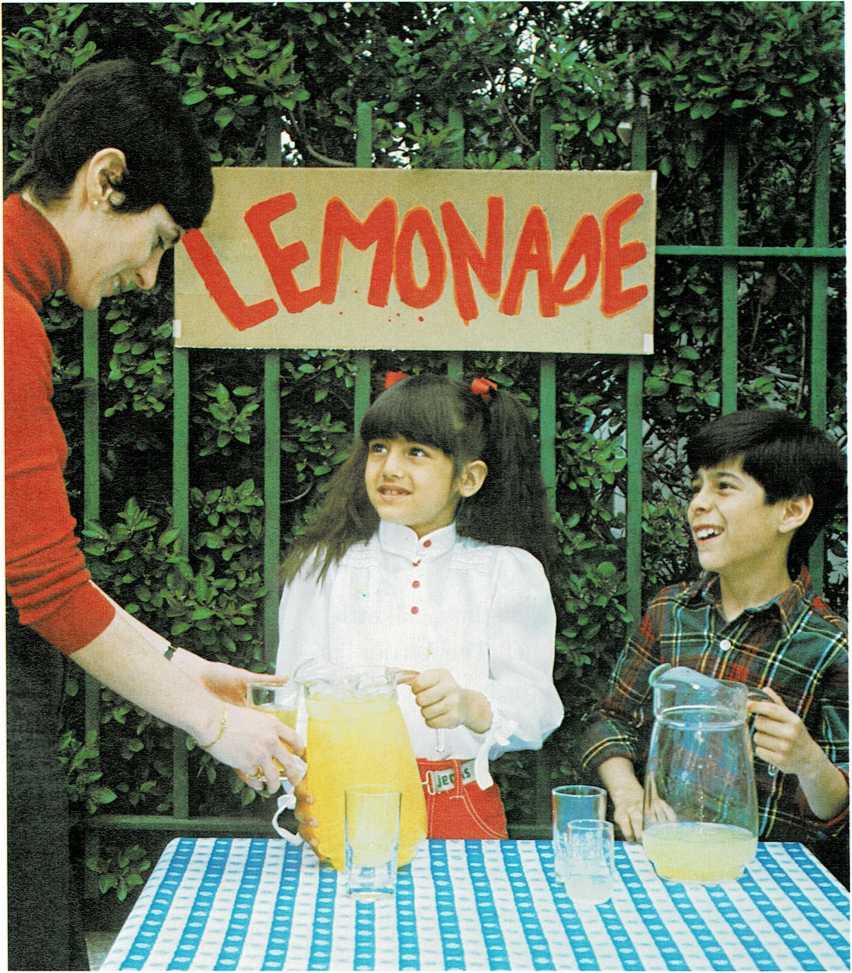Little blocks of water
Why does lemonade get cooler when you put ice cubes in it? The answer
may surprise you. The lemonade cools down because it heats up the ice!
Ice cubes are a solid—little blocks of frozen water. The water
molecules in ice cubes have very little heat energy. They move very
slowly, and they pull very hard on each other.
There are water molecules in the lemonade, too. But even in very cold
lemonade, the water molecules move much faster than molecules of solid
ice. They have much more heat energy than the ice does.
When you put ice cubes in lemonade, the fast-moving molecules in the
lemonade bump against the slow-moving molecules in the ice. Bit by bit,
they make the molecules on the outside of the ice cubes speed up. When
the molecules are moving fast enough, the ice begins to melt—it
changes from a solid to a liquid and mixes with the lemonade in the
glass.
But ice molecules need a lot of energy to melt. They get that heat
energy from the lemonade. As the molecules in the lemonade lose their
heat energy, they slow down. They bump against each other less and less,
and the lemonade gets cool.
As long as there is ice in the glass, heat energy moves from the
lemonade to the ice

cubes. So your lemonade stays cold until all the ice is melted. When
there is no more ice to take up heat energy, all of the lemonade in the
glass gets warm.

